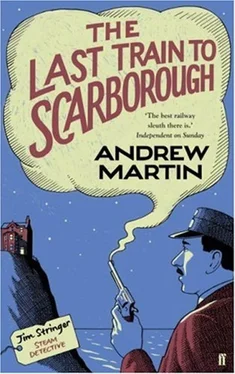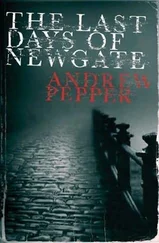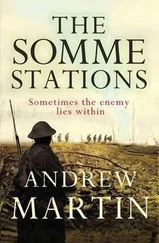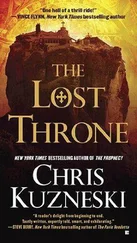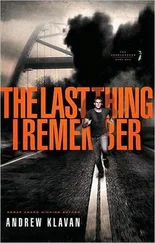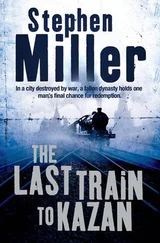The fire – lit, as I supposed, by Adam Rickerby – burned two feet away from my bed and it made the room too hot like the rest of the house. I turned on my side and watched the line of white light under the closed door – for the gas in the little hallway still burned – and I thought of Fielding. Well, it stood to reason that he was an ex-convict. An apparent gent living permanently in a Scarborough boarding house would have to be in queer somehow even if he wasn't broke, and he certainly didn't seem to be that. He was one of those free-floating businessmen who lived by a series of schemes, and that sort often did pretty well even though the schemes never came to anything.
I ran through some motives for murder – with which the house was fairly bursting. Adam Rickerby was generally nuts, and would defend the house at all costs. Fielding's post card company had been given the chuck by the North Eastern Railway, and he was a man with a past. Had Blackburn known him in Leeds, and been threatening to talk out of turn about him? Fielding wouldn't want the Recorded Music Circle to know he was a convicted fraudster – that'd put a crimp into his social life, all right.
Vaughan was a dirty dog in all respects, and was either honest and open with it, or a splitter who had something to hide. He paid lip service to the idea that Blackburn had made away with himself. But he also seemed to keep trying to drop Fielding in it, and he'd begun pointing the finger at Adam Rickerby into the bargain. The business of the signalling out to sea: why would Rickerby do that? His chief concern as far as I could see was sticking to the bloody meal times. Was Vaughan really trying to put the knock on Adam Rickerby? But he'd as good as put himself on the spot at the same time. By letting on that he'd shown the special range of cards to Blackburn, he was admitting to acting in a way that a sober-sided man like that could easily take against.
Amanda Rickerby? She was mysterious all-round, and she too might well have something to keep from the world at large. She drank, for starters; she was anti-religious where Blackburn had been a bible thumper, and she was funny about the rent. She was, or had been, short of money. She was up to something, anyhow.
I rolled over to the other side and looked at the fire, noticing that it was starting to smoke a little. I climbed out of bed, picked up the water jug that stood by the wash stand, and dashed a pint or so onto the red coals. The sound was tremendous. How a fire protested when you did that! I was replacing the water jug when my toe scraped against something in the floorboards. Looking down, I could make nothing out, so I edged along by the bed until I came to the table where the oil lamp and matches sat. I lit the lamp, carried it back over, and set it down. A short length of lead tube – about a quarter inch worth – stuck up. It was the top of one of the two gas pipes that rose up beyond the lamps in the room of Theo Vaughan: the stub that had remained after the gas pipe (and gas light) in my own room had been removed. Gas would naturally rise to the top of any vertical pipe, but this stub had been nipped tightly shut with a pair of pliers to stop any escape and, leaning closer, I could detect no gas smell from it. Lead, being soft, is easy to nip in that way and I was satisfied that a perfect seal had been made.
I lifted the lamp to the other side of the hearth, and there was the second outcropping of pipe. It too was tightly sealed and gave off no smell. I returned the lamp to the table, blew it out, lay back in my bed, and listened for footsteps on the stairs. I heard the chimney flute note at one o'clock by my watch, and again at four, and I don't believe I slept in all that time but just revolved endlessly the mysteries of Paradise while trying to anticipate the surges of the sea wind against the window. As I lay on the bed I had mostly faced the door but, on hearing the chimes of five rise up from the Old Town, I decided the worst of the night was finished, turned over to face the wall rather than the door, and fell asleep amid the dawn cries of seagulls.
I awoke and lifted my hand to the back of my head. A delicate sea shell, a fine crab shell perhaps, seemed to hang in my hair. I could not quite trust my hand, for it was made nerveless by cold, but the thing seemed to be at the same time part of me, and not part of me. I tried to tug at the thing, and it both cracked and melted. I brought my hand down, and there was a sticky dampness to it. I could not make out its colour but I knew it to be blood; when dampness comes out of nowhere it is generally safe to assume the worst – to assume that it is blood.
My headache was no worse, anyhow. If anything, I fancied that it was easing, and it had been a while since I'd had one of the electrical flashes. But I wanted badly to get warm. I sat up and put the oilskin more tightly around me. The rise and fall of the ship had become a gentle rocking, a soft swinging, nurserylike. I thought of the wife. Was it true, as I suspected, that she would no longer carry her basket down the main street of Thorpe-on-Ouse in case Robert Henderson should see her about her marketing, and think her low class for not having a servant to do it for her? I could picture Lydia very clearly both with and without basket in the middle of Thorpe, which was proof that my memory was returning. It also seemed to me that there was nothing to choose between the two mental pictures. I had been a fool to fret about Henderson – my anxiety had come from having no graver matter to worry about. I would go back to Thorpe and I would have it all out with Lydia, and if it came to it I would go up to his big house with the stone owl sitting over the door, and I would clout Henderson. Furthermore, I would not be a solicitor, because I did not want to be a solicitor. Even at thirty I was too old and the change of life was too great, and the lawyers were at the shameful end of railway work. It seemed to me, as I sat in that rolling black iron prison, that I had gone to Paradise looking for trouble and hardly wanting to come back because my future, although apparently promising, had been taken out of my own hands. But I would return to York and I would reclaim my future, and if I didn't then I would take a bullet, and there would be nothing between these two outcomes of my present fix.
… Yet while the image of Lydia in Thorpe was clear in my mind, I could still not recall the end of my time in Paradise; and how could my future be contemplated until I had done that? My memory of the final events was lost in a jumble of over-heated rooms propped high above a black sea – a sea that was never still, but that came on in a way somehow un-natural, like a crawling black field.
I lay still; began once more to shiver. I might have slept again in spite of the shivering, and presently, there came a disturbance in the iron room. I could not say what had caused it, but something had changed. All was still again, and I kicked out at the nearest chain link, and it was as though the thing had nerves and had taken umbrage at this, for the part that ran up through the hole shivered for a second, and then the great snake began racing upwards through that hole, making a breakaway with a tremendous, deafening roar that forced me to clap my hands to my ears and move to the furthest corner of my cell.
When I awoke the lighthouse beam was off, and all was grey along the front. Throwing the bed clothes aside and moving rapidly towards the window I thought some calamity had occurred, but it was just an early winter's morning in Scarborough. There came a knock at the door.
'Yes,' I said.
'Yer tea,' said Adam Rickerby.
'Morning,' I said, opening the door – and he passed me an enamel tray with tea things set out on it. My boots, highly polished, were strung by the laces about his neck. These he set down just inside the door, together with a big jug of hot water for shaving. He'd carried the tray in one hand, and the jug in the other. He was dressed as before, in the long apron, but his hair had grown a little wilder in the night.
Читать дальше
